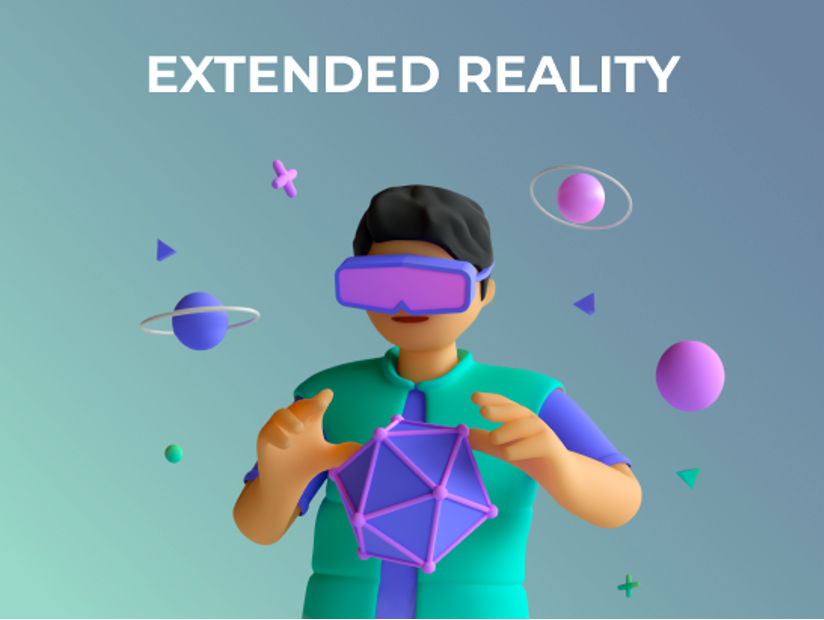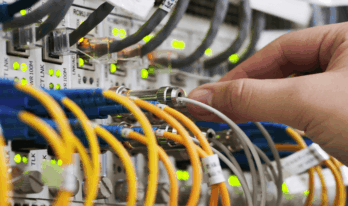What is SMB? The Role SMB
Extended Reality in small and medium-sized businesses (SMBs) or Small and Medium-sized Enterprises (SMEs) are companies with fewer employees than a certain threshold. These businesses are more significant than micro-businesses but smaller than large corporations. They are classified based on the number of employees, assets, and revenue, the limit of which varies from country to country.
The SMBs play a vital role in an economy. They generate a lot of employment, help advance innovation, and drive economic growth.
What is the significance of SMBs (Small and Medium-sized Businesses) in today's business landscape?
SMBs account for most businesses worldwide, contributing about 90% and generating over 50% of employment. They are significant contributors to job creation and provide economic innovation and growth.
As SMBs struggle financially, they must continuously strive to keep production costs low. They are better at using their resources more efficiently.
Small and medium-sized businesses can now explore new possibilities and expand their horizons without taking too much risk, which can be achieved using their existing technology instead of investing in new and untested tech.
Addressing the financing gap is crucial to unlocking the full potential of SMBs. Many nations are focusing on SMBs to help them grow and scale by providing incentives in taxes and government schemes to help generate capital. As SMBs are small, implementing new ways is much easier than in large corporations.
Therefore, it is essential to explore innovative opportunities proactively. One such opportunity is the Extended Reality (XR).
How does Extended Reality (XR) play a role in SMBs?
Extended reality is a term used to refer to technologies such as virtual reality (VR), augmented reality (AR), mixed reality (MR), and any other immersive technologies that may emerge in the future. The technology intends to combine & mirror the physical world with a "digital twin world" and interact with it.
Extended Reality (XR) helps convert concepts into experiences, allowing companies to deliver a unique customer experience and enhance productivity.
The SMBs in the following sectors can make use of the XR :
Education
It is well known that visualization helps in better retention and learning. XR in Schools, Colleges, and Universities can transform how we learn.
Product Development Manufacturing firms can use XR to design and manufacture products. With XR, engineers can easily create, test, and amend product designs to get the desired output.
Food
From training material and real-life simulations of processes, XR offers a new way of executing things. One of the most critical aspects of the food industry is hygiene. With the help of MR technology, a digital layer, like routine hygiene inspection, can be added to it. MR devices, like HoloLens, are already popular among food manufacturers.
Marketing and Sales
Immersive customer experience is the ongoing trend in the industry right now with Virtual reality and Augmented reality.
Retail
We are already seeing a trend in this sector regarding virtual reality. Many E-commerce platforms and retailers have implemented virtual reality elements in their retail experience where customers can see how a particular piece of clothing or accessory will look on them by just uploading their picture and trying on pieces virtually.
Real Estate
Interior designers and Architects can take advantage of XR and create life-like designs to showcase them to the clients.
Healthcare
Healthcare has already seen a lot of applications in the recent past when it comes to augmented reality (AR), virtual reality (VR), and mixed reality (MR). From studying in classrooms to examining scans to performing surgeries, we see an increasing interest in the field of this technology.
What are the benefits of implementing XR technology in SMBs?
The potential of extended reality (XR) in business is immense. Here's how utilizing XR technology in your company can be of advantage:
Higher Customer Engagement and Enhanced Customer Experience
XR technology is revolutionizing the way customers interact with products. Be it the shopping experience, live events, or designing. XR technology helps buyers see how a particular piece of clothing or furniture would look in the space. For instance, IKEA's AR-based application named IKEA Place enables users to 'place' a table in their area. It helps people determine whether the furnishings fit in their home/workspace and match the design and functionality of their room.
Better Communication and Collaboration
XR technology can considerably improve collaboration. They are using XR applications to collaborate on projects, even when they are not in the same room. For example, teams working remotely can easily collaborate in real time with VR conferencing or 3D avatars.
Better Data Analysis
Data plays a vital role in today's day and age. With digital metrics like biofeedback, eye-tacking, heart rate monitoring, etc., collecting behavior data of customers is possible with XR.
In marketing, how a consumer interacts and reacts with the product can be a game changer. With the XR collected data, one can design a marketing campaign that attracts them.
Safe Training Environment
XR can be used as a tool in the business world to train employees. With Extended Reality (XR), potentially hazardous activities like surgery practice, flight training, rescue training, military exercises, etc., can be simulated in a safe environment. XR technology allows employees to learn faster from their mistakes without worrying about the negative outcome, thus reducing employee onboarding time.
Conclusion
Small and Medium-sized Businesses (SMBs) are the backbone of an economy, playing a pivotal role in the development and growth of the nation. They are significant contributors to job creation and advancement and drive innovation in the country. The SMBs work on a tight budget, so they are efficient in resource management.
Embracing Extended Reality (XR) technology can help SMBs deliver better service and grow. From visualization of anatomy in the surgical field or training simulations, we already see many XR applications across all industries. With XR, enhancing customer experience, improving collaborations in remote teams, and understanding how audiences interact with products are possible.
You may also like to Read:
Lead Gen vs Demand Gen: How the Two Marketing Techniques Differ?





